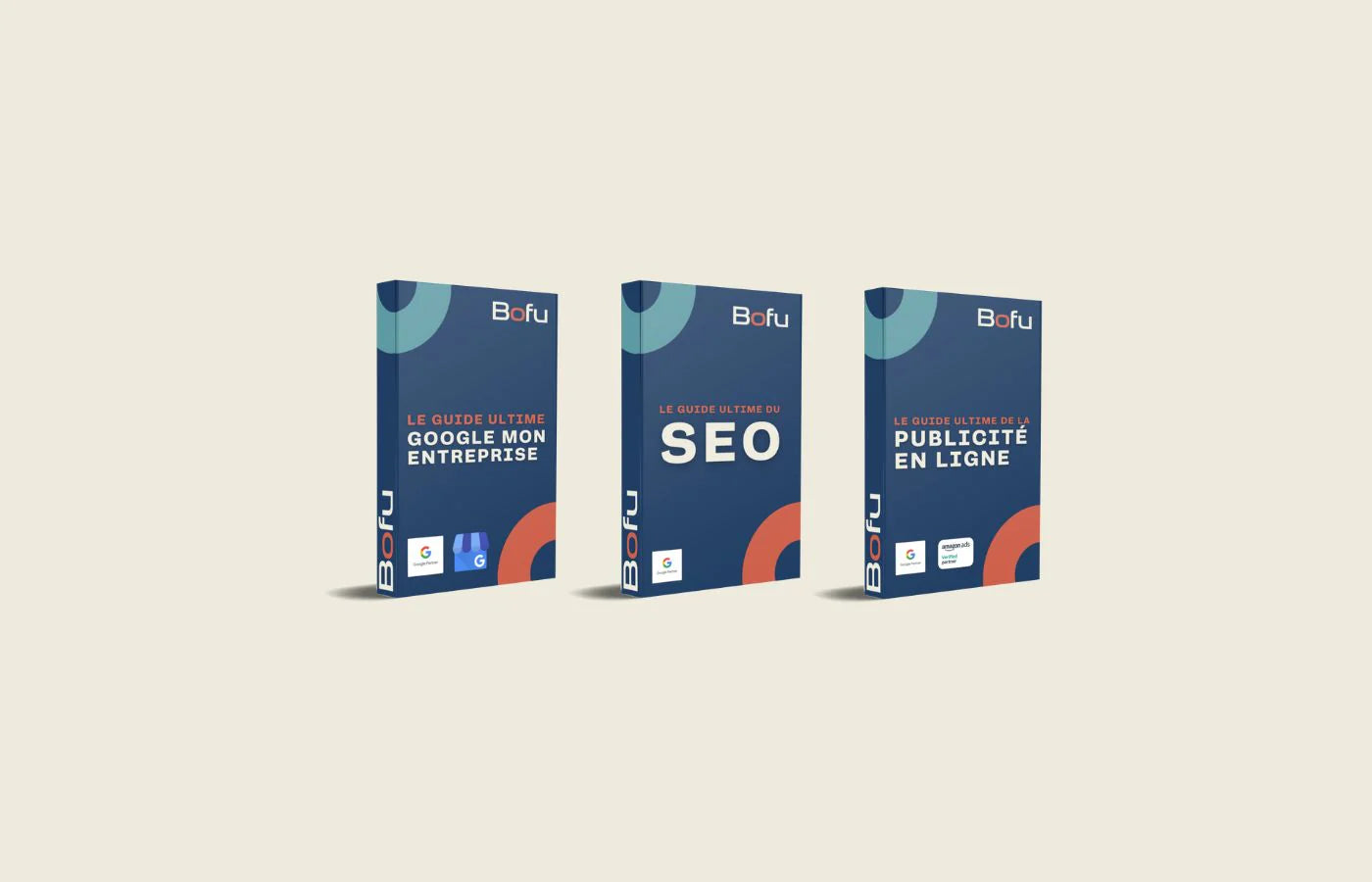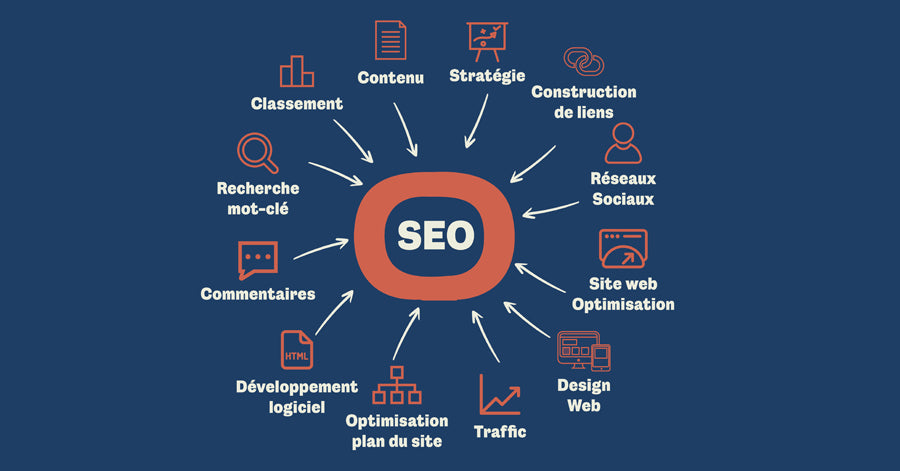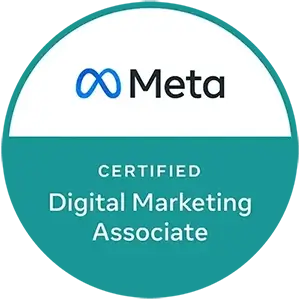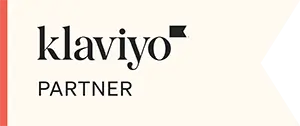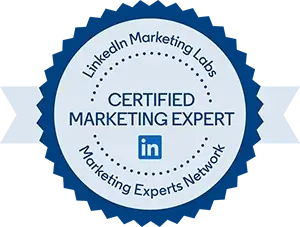In the world of SEO, few topics provoke as much debate as the role of backlinks . Once the cornerstone of natural referencing, netlinking is now surrounded by gray areas. Google claims to be reducing their importance, but the reality on the ground remains nuanced.
So, are backlinks still essential in 2025? What are the best practices to follow? And most importantly, how should a service business or eCommerce store approach them? We'll shed some light.
Why backlinks have long been at the heart of SEO
Inbound links (or backlinks) are votes of confidence from one site to another. The more links a domain receives from reputable sites, the more authority it gains in the eyes of search engines .
This is the basis of Google's PageRank algorithm. For years, accumulating links was a winning strategy... sometimes at any cost.
But the landscape has changed.
What Google Says (and What It Really Means)
For several years, Google has been saying that backlinks are no longer the number one ranking factor. In March 2024, John Mueller even stated that links are "less important than in the past" ( source - nofollow ).
However, field studies (including those from Ahrefs, Moz, SEMrush) show that pages with more quality backlinks continue to rank higher .
Bottom line: Backlinks still matter, but quality > quantity . And artificial practices are riskier than ever.
Common Beliefs About Backlinks
The world of SEO is full of misconceptions, and backlinks are no exception. One of the most common beliefs is that you need to accumulate a large number of links to rank high —no matter how good they are.
But in reality, a single quality link from a credible and relevant site can sometimes have more impact than 100 questionable links . Another persistent myth is that all backlinks must be “dofollow” to be useful. In reality, even “nofollow” links can contribute to visibility, referral traffic, and awareness—indirect signals that are taken into account by search engines and generative AI.
Finally, many businesses mistakenly believe that social media is irrelevant for SEO , even though it can play a strategic role in content distribution, trust signals, and brand mention generation. Breaking these misconceptions is essential to building a sustainable off-page SEO strategy that is aligned with today's search engine reality.
Backlinks for service businesses
For a service company (e.g. agencies, firms, consultants), the approach must be editorial and relational . This means:
-
Obtain links through media mentions , partnerships or original studies .
-
Publish guest articles on credible sites in your industry.
-
Be cited in specialized directories or comparison sites.
This joins a complete Off-Page SEO strategy, as we propose in our natural referencing service and our page dedicated to off-page SEO .
Backlinks for eCommerce
In e-commerce, links can have an indirect but powerful impact:
-
A good backlink can generate immediate qualified traffic (e.g., blog of an influencer in your niche).
-
Being mentioned by a media outlet or product comparison site can increase awareness AND conversion.
-
A digital PR or UGC (user-generated content) campaign can generate dozens of links.
This fits naturally into an omni-channel strategy , which links SEO, content, influence, social media and advertising .
How do you know if your links are good?
Here are some simple criteria to evaluate the quality of a backlink:
-
Is the site relevant to your industry?
-
Is this an editorial link (inserted in natural content)?
-
Does the domain have good authority ?
-
Is the link followed (dofollow) or not followed (nofollow) ?
-
Is there real traffic on the page linking to you?
Bad links (from dubious networks, PBNs, undeclared paid links) can do more harm than good.
What AI is changing in Off-Page
Artificial intelligence is also disrupting off-page SEO. Here's how:
-
Generative AIs (like ChatGPT or SGE) reference brands that are frequently mentioned on other sites, even without a direct link.
-
Automatically generated content for link building is easily spotted by Google , especially without added value.
-
Trust signals are becoming more important than the links themselves: brand mentions, presence in AI , structured data, etc.
This is where disciplines like GEO (Generative Engine Optimization), AIO (AI Indexing Optimization) and AEO (Answer Engine Optimization) come into play, which we explore in our specialized articles:
Backlink toxicity: an underestimated risk
Not all links are created equal. Some backlinks can harm your SEO, especially if they come from questionable sites, penalized by Google, or from artificial networks (PBNs). Although Google claims to ignore a large portion of these links, an abnormal accumulation can send bad signals. For a healthy strategy, it is essential to regularly analyze the quality of your link profile and, if necessary, disavow the most toxic ones via Search Console . A complete SEO audit like the one we offer in technical SEO can help identify these risks.
The language of referring sites influences relevance
Receiving a link from a German, Spanish, or English site when your site is only in French can be problematic, especially if the two contents are not semantically related. Google values linguistic consistency in its backlink evaluation. In a multilingual and international SEO context, it is important to develop backlinks in each targeted language, ensuring that the content remains relevant.
Geographic origin: an underestimated factor
The location of the referring domain carries significant weight. A Quebec or Canadian site that receives the majority of its links from Indian or Russian domains can arouse suspicion. Conversely, links from local or regional sites, such as newspapers, chambers of commerce, or specialized directories, can greatly improve your local SEO . Geographic relevance is therefore a strategic lever that is too often overlooked.
Linked pages should be diverse
Another point that's often misunderstood: backlinks shouldn't only point to the homepage. A natural distribution of links to different sections of the site (service pages, blog articles, product sheets) strengthens the credibility perceived by search engines. This also helps improve the overall authority of the site, in line with a good on-page SEO strategy.
Seniority and stability of links
The most effective backlinks are often those that last. A link embedded in a regularly viewed feature article has much more impact than a temporary link in promotional content. Google values the stability of a link over time. Hence the importance of favoring long-term publications over one-off actions.
Origin Site Type: Not all domains are created equal
A link from a personal blog, a forum, a well-known media site, or a business listing in a directory will not carry the same weight. A good backlink profile includes a balance of domain types : authority, relevance, and variety. Backlinks from sites with high credibility (government, education, press) are often the most powerful. This point connects well with our approach to off-page SEO .
The semantic context around the link
A backlink isn't just a URL. The context in which it's inserted plays a critical role. A link naturally integrated into a relevant paragraph is much more effective than a link in the footer. Google evaluates the semantic field surrounding the link to deduce its relevance. This is in line with the logic of AIO – AI Indexing Optimization , where Google's AI judges not only the link, but the content around it.
Sponsored links, UGC and transparency
Since the introduction of the rel=sponsored and rel=ugc attributes, it is crucial to declare the nature of the links . A paid link (media placement, partnership, etc.) must be identified to avoid penalties. Google does not penalize these practices if they are transparent. This allows you to diversify your tactics (influence, affiliations, ambassadors) without risking compromising your organic results.
What Bofu recommends
Our approach is clear: netlinking should never be an isolated strategy .
It is one lever among others in a complete SEO strategy, integrated with:
-
Original and well-structured content ( see our article on on-page SEO )
-
A solid technical base ( see our article on technical SEO )
-
An optimized user experience ( see our article on SXO )
In conclusion
Backlinks are neither dead nor omnipotent. They're a key piece of the puzzle in a successful SEO strategy, for both service-based businesses and e-commerce sites.
Nowadays, it is better to invest in useful, long-lasting and natural links , than to chase after dozens of artificial backlinks.
Want to know if your link profile is helping or hurting you?
Discover our complete SEO service or contact our team for a personalized audit .
